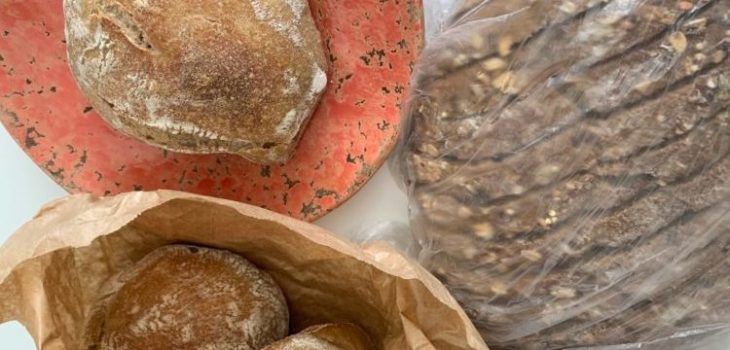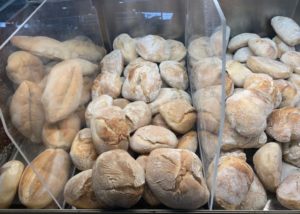
I’ve gained weight, and the bread is to blame
It’s not 15 pounds, but I’ve gained weight in Portugal — at least 5.
I can see it in my chin, a bit in my belly, a pinch at my hips.
Students going to college often gain the “freshman 15” — 15 pounds from eating more of the wrong kinds of foods at the wrong time of day without enough exercise to balance it.
Foreign exchange students do something similar, although some lose weight because they aren’t able to eat the foods (or don’t like them). (Ask my daughter about Thailand’s spicy foods.)
Gained weight
I’m not a student, but I’ve gained the weight.
And I know the culprit, too. I eat pretty much like I do in the States, with one exception: bread. Fresh, delicious, carb-loaded bread.
I’ve always liked good bread. Homemade or specialty bakery bread. Not just from a grocery store, though. Fortunately (?), we don’t have a lot of good bakeries in the States. There are some, but they aren’t close by for me. Not in walking distance. Not like here.

I can’t even tell you how many places I can buy fresh bread — made that day, still warm when you pick it up — within a mile of my house in Portugal. A dozen maybe? More if you count coffee shops. They have shops here dedicated to bread. Even grocery stores here have bakery fresh bread — probably to keep up with the competition.
Baguettes, buns, rolls, loaves. They each have their own names — which I don’t know. No, I just point and say a number: Um, dois, tres.
It might help curb my appetite if it was expensive, but it’s not. I got three nice little buns and a round loaf of seed bread for €2,38. ($2.67 USD) I mean, come on. For that price, I have to buy it!
Just say no?
Since I got here, I’ve struggled with bread. I go between saying no, I don’t need it, and buying it because I’m only here for a few months.
Last weekend, I shopped without buying any bread! Then Sanam and Joao came home and started cooking to go to the beach. We were having burgers, and they bought really nice rolls to use as buns. I couldn’t say no. At least I didn’t have my own bread to eat, too.
Soon, I’ll be back to bland bread — for the most part. There are a few good bakeries in Chattanooga and one in Stevens Point, which I will visit occasionally. I can say no easily to grocery store bread and buns in the US.
And hopefully I will lose the extra weight I’ve gained. Until then, I guess I’ll just keep enjoying my bread. Bon appetit!
Be a Better Writer Tip
I looked up where to place the sign for the European currency (euro) (€). In US dollars, we use the symbol ($) before the amount, so I assumed it would be the same for euros.
But then I also have seen it in different places in signs around Portugal, so I knew I should look it up.
Depending on where you look, you’ll get lots of answers. German-speaking countries usually put the symbol after the number (10€). Countries that use the British pound prefer it before the number (€10). Legally, any documents mentioning euros require the term EUR instead of the symbol to be placed before the number (EUR 10). The symbol (€) is supposed to be reserved for graphics and not text, according to the Europa publications office.
I’m going with AP Style, which is euro-symbol-number (€10).



